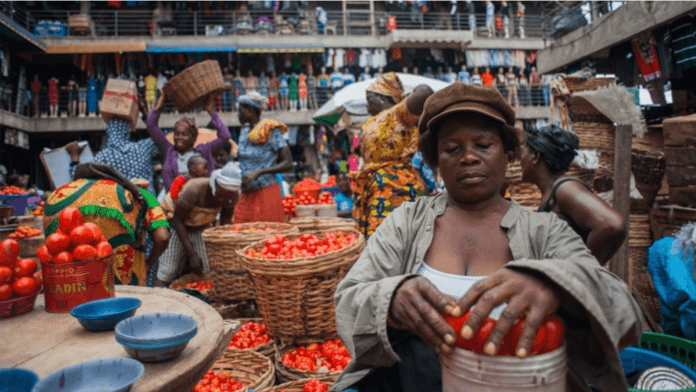News in brief:
– The AfDB projects Africa’s food and agriculture market to reach $1 trillion by 2030 through initiatives like TAAT.
– Significant investments are being made to boost agricultural productivity and empower youth and women in agriculture.
The African Development Bank (AfDB) has projected that Africa’s food and agriculture market will reach a staggering $1 trillion by 2030.
Speaking at the Second Interactive Session With Youths and Women in Agriculture in Abuja, Marie-Laure Akin-Olugbade, the Vice President of Regional Development, Integration, and Business Delivery at AfDB, outlined the bank’s initiatives to achieve this ambitious target.
Technologies for African Agricultural Transformation (TAAT)
One of the key initiatives driving this transformation is the Technologies for African Agricultural Transformation (TAAT) program. With a budget of $25 billion, TAAT aims to revolutionise African agriculture by providing cutting-edge technologies to over 40 million farmers. This initiative is critical in making Africa food secure by 2030.
In Nigeria, the TAAT program delivered 6,750 tons of certified seeds of heat-tolerant wheat varieties to 118,000 farmers for the 2023/2024 planting season. This resulted in the planting of 120,000 hectares of wheat, contributing to a record harvest of over 600,000 tons of wheat grain, the largest in Nigeria’s history.
Special Agro-Industrial Processing Zones (SAPZs)
The AfDB is also investing in Special Agro-Industrial Processing Zones (SAPZs) to bring economic infrastructure to rural areas with high agricultural potential. With $4.5 billion mobilized for 28 zones across 11 countries, SAPZs are designed to attract private investments, enhance productivity, and stimulate rural economies.
In Nigeria, $520 million has been provided to establish SAPZs in seven states and the Federal Capital Territory (FCT), enabling private agribusinesses to process and add value to agricultural commodities.
To combat food price inflation, the AfDB provided $134 million to Nigeria for emergency food production, boosting local production of wheat and cassava under the National Agricultural Growth Scheme. This initiative is part of a broader effort to reduce the continent’s dependence on food imports, which was costing Africa $35 billion annually by 2015 and could reach $100 billion.
Key drivers of agricultural growth
Akin-Olugbade highlighted the critical role of Africa’s youth and women in driving agricultural growth. With 21.5% of the population being youth and 50.8% being women, the continent has a significant reservoir of talent and energy. By 2050, Africa’s youth and women population is expected to hit 830 million, presenting a unique opportunity for socio-economic transformation.
Examples of innovation in agriculture include Samson Ogbole’s Soilless Farm Lab, which uses aeroponics to grow crops without soil, and Femi Adekoya’s Integrated Aerial Precision, which employs drone technology for crop management. These entrepreneurs demonstrate the potential of youth-led agricultural innovation in Africa.
AfDB’s commitment to Nigeria
The AfDB’s commitment to Nigeria is evident in its $10.9 billion cumulative financing approvals, with $4.9 billion currently supporting various public and private sector projects. According to Lamin Barrow, Director General for the West Africa Region, the bank’s 10-Year Strategy (2024-2033) recognises the potential of Africa’s young workforce, urban markets, and natural resource wealth to drive the continent’s progress.
Minister of Agriculture and Food Security, Abubakar Kyari, assured stakeholders of the federal government’s willingness to partner in boosting women and youth participation in agriculture. This partnership aims to reduce poverty, create jobs, and tackle food insecurity.



